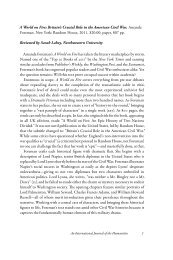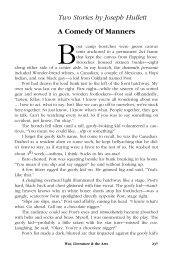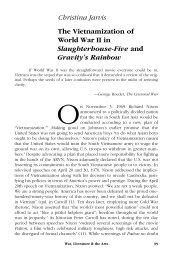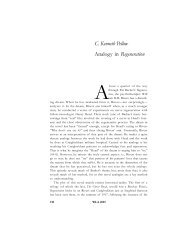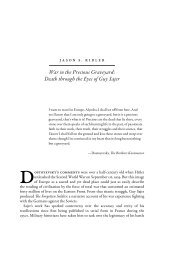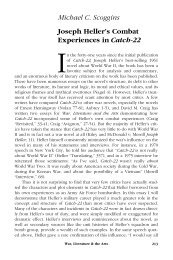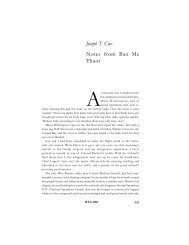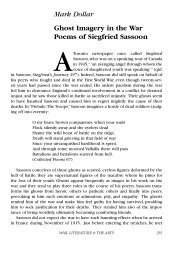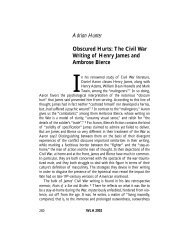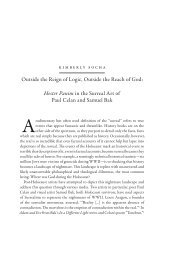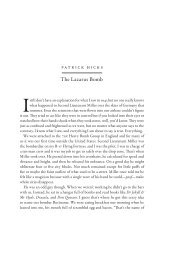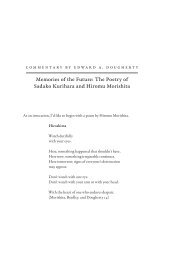Conrad's “The Secret Sharer”: A Private Ethics of Leadership
Conrad's “The Secret Sharer”: A Private Ethics of Leadership
Conrad's “The Secret Sharer”: A Private Ethics of Leadership
You also want an ePaper? Increase the reach of your titles
YUMPU automatically turns print PDFs into web optimized ePapers that Google loves.
expensive in just this way: that they risk the rest <strong>of</strong> us. Their development<br />
necessitates departures from the established ethos, the ethos <strong>of</strong> Captain Archbold<br />
and the conventional ethical coordinates that map out prescribed actions.<br />
The message is elitist and may be dangerously so: that leaders, even prospective<br />
leaders, must take for themselves a margin <strong>of</strong> independence that the rest <strong>of</strong> us cannot<br />
share. This is Raskolnikov’s theory at the beginning <strong>of</strong> Crime and Punishment and<br />
Dostoevsky puts him through hell for acting on it. But Conrad takes a different<br />
view. He seems to be telling us that in the immense play <strong>of</strong> authority and in its<br />
immense ambiguities leaders will find the conventional ethos, the Archbold view<br />
<strong>of</strong> justice, inadequate. It will not be sufficiently flexible, precise, and extreme to<br />
cover the radical situations in which leaders function. Leaders must possess an<br />
alternative ethos, an ethical metasystem by which to measure the efficacy and<br />
perhaps even the justice <strong>of</strong> the law, <strong>of</strong> the established home system. There will be<br />
moments when the received definition <strong>of</strong> duty will prescribe the wrong action–<br />
Captain Archbold’s action, or Captain Vere’s–or when it will have nothing to say.<br />
But leaders cannot afford to have nothing to say, nowhere to turn. Leaders must<br />
act in a single lucid gesture and give an unequivocal command. Leaders can make<br />
this single gesture, utter this single command, only if a private self sustains them<br />
secretly from within, beyond the order <strong>of</strong> those conventional systems <strong>of</strong> prudence<br />
and duty that regulate most <strong>of</strong> our perceived choices.<br />
Notes<br />
1. For a related discussion <strong>of</strong> charisma see Raphael Falco, Charismatic Authority in Early Modern<br />
English Tragedy (Baltimore: The Johns Hopkins Up, 2000).<br />
2. Joseph Conrad, <strong>“The</strong> <strong>Secret</strong> Sharer,” The Portable Conrad, ed. Michael Gorra (New York:<br />
Penguin Classics, 2007), 10, 9.<br />
Thomas Vargish teaches literature and film at the United States Air Force Academy.<br />
He has published books and essays on nineteenth- and twentieth-century literature and<br />
cultural history. Pr<strong>of</strong>essor Vargish holds degrees from Columbia, Oxford, Princeton, and<br />
Lund universities and has been a Rhodes Scholar and Guggenheim Fellow.<br />
x War, Literature & the Arts



